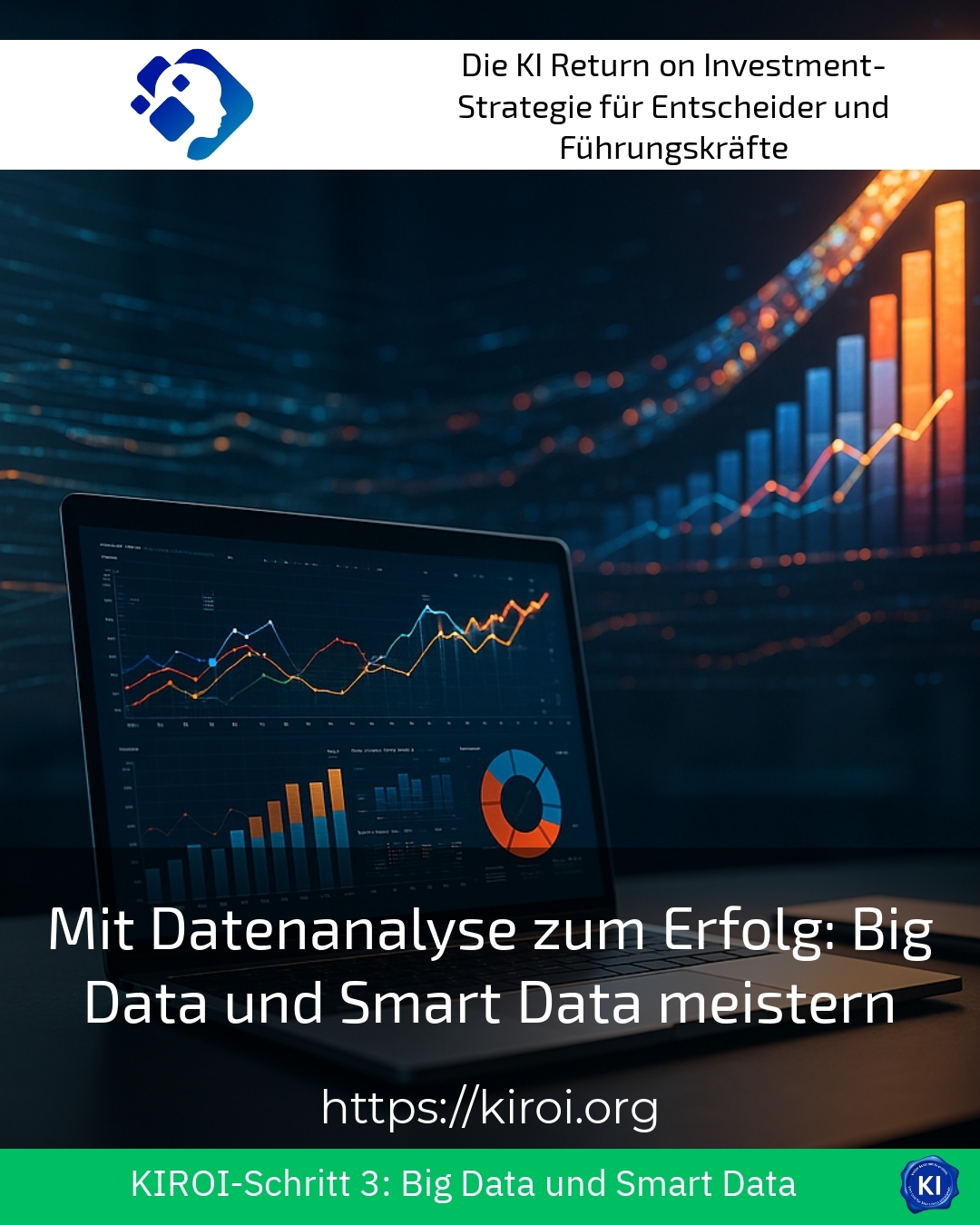Why data analysis is crucial for success
Data analysis is playing an increasingly important role for companies that want to hold their own in an increasingly complex market environment. It helps to gain valuable insights from a variety of data sources. This is not just about sheer volumes of data, but about the targeted utilisation of information that is strategically relevant. This is because companies often come to us with questions about how they can utilise the enormous potential of data more effectively.
Many report that although they have large amounts of data, they find it difficult to derive actionable results from it. This is where the difference between mere data collection and intelligent data analysis becomes apparent. Our support in the coaching process provides impetus for filtering and structuring data qualitatively and making it usable in such a way that it can create real added value.
Big data and smart data - quality over quantity
A key issue that many people come to us with is the distinction between big data and smart data. Large amounts of data (big data) are impressive due to their sheer size, but harbour the risk of being confusing and imprecise. In practice, this often leads to high costs and information overload without clear direction.
Smart data, on the other hand, stands for specifically selected and processed data that provides relevant and usable insights. This ensures faster decisions and better adjustments in projects. Sustainable data analysis therefore does not always have to strive for more data, but above all for better processed data.
For example, companies in the service sector have often found that targeted filtering of large amounts of customer data can quickly identify specific behavioural patterns that make marketing much more efficient. In the manufacturing industry, smart data is used to optimise production by identifying and eliminating sources of error at an early stage.
Examples from practice
KIROI BEST PRACTICE at company XYZ (name changed due to NDA contract) A production company utilised extensive sensor data from production as part of a project. By analysing the data in a targeted manner, they were able to significantly reduce machine downtimes. The smart data methodology helped to derive precise fields of action from the confusing raw data, which led to an increase in operational efficiency.
KIROI BEST PRACTICE at ABC (name changed due to NDA contract) A large amount of customer data was analysed in the area of customer service. The combination of smart data and AI-supported pattern recognition enabled customer enquiries to be categorised more quickly and personalised responses to be provided automatically, which significantly improved customer satisfaction.
KIROI BEST PRACTICE at DEF (name changed due to NDA contract) A retail company used intelligent data analysis to gain insights into sales trends. The targeted use of smart data made it possible to better manage stock levels and predict seasonal demand more accurately, which reduced capital commitment and increased sales.
Data analysis to support better decisions
In data analysis projects, we support companies in defining suitable process steps and introducing appropriate technologies. We provide impetus on how to process data in such a way that it meets individual company objectives and facilitates day-to-day work. Clients often report that this support helps them to reduce the complexity of data and gain more certainty when making investment decisions.
It should be noted that data analysis is not a miracle formula. It supports teams in making better decisions, but does not replace the need for expertise and experience. Humans always remain an important part of dealing with data in order to put it in the right context and use it in a targeted manner.
Practical implementation of data analysis in companies
There is a wide range of ways in which data analysis helps with the use of big data and smart data. In the healthcare sector, for example, large patient data sets are analysed in order to improve treatment methods and develop personalised therapies. In the financial sector, smart data is used to recognise risks at an early stage and detect attempted fraud.
Small and medium-sized companies also benefit from strategically analysing their data streams. SMEs in particular are often confronted with the challenge of creating a consistent database from individual data islands on which decisions can be based.
Examples from across the board
KIROI BEST PRACTICE at GHI (name changed due to NDA contract) A medium-sized service provider built a dashboard based on smart data. This gave managers quick and clear access to relevant business figures and enabled them to react to trends earlier than before.
KIROI BEST PRACTICE at JKL (name changed due to NDA contract) A logistics company used smart data to analyse transport routes and plan routes more efficiently. This reduced delivery times and significantly lowered operating costs.
KIROI BEST PRACTICE at MNO (name changed due to NDA contract) In the retail sector, the analysis of smartly prepared customer data led to customised marketing campaigns. This increased customer loyalty and made it possible to target potential buyers more precisely.
My analysis
Data analysis is the key to moving from large amounts of data to better quality and more targeted utilisation. Companies that turn away from pure quantity and instead focus on smart, practical data can strengthen their competitiveness. KIROI provides coaching and support so that projects involving artificial intelligence and data analysis can be implemented in a well-founded manner.
Further links from the text above:
Big Data vs. Smart Data: Is More Always Better? - Netconomy [1]
Big Data and Data: Differences, Benefits, and Best Practices [2]
Big Data vs. Smart Data: Key Insights for Operational Optimisation [4]
Big Data vs. Smart Data: Valuable Insights to Optimise Operations [7]
For more information and if you have any questions, please contact Contact us on the topic or read more blog posts on the topic Artificial Intelligence Blog here.















